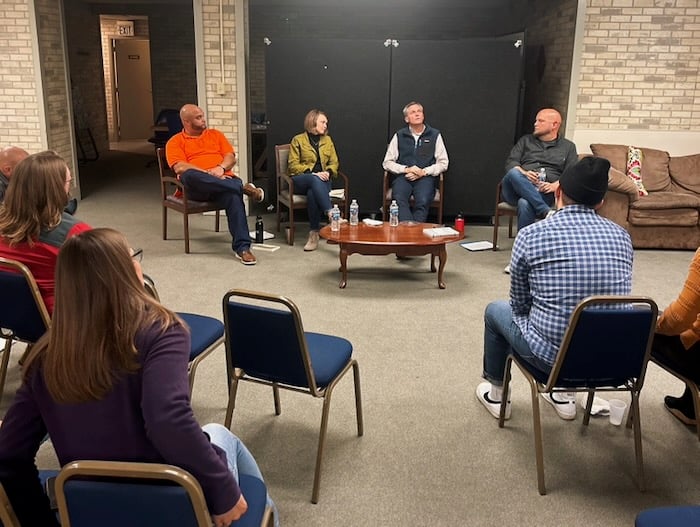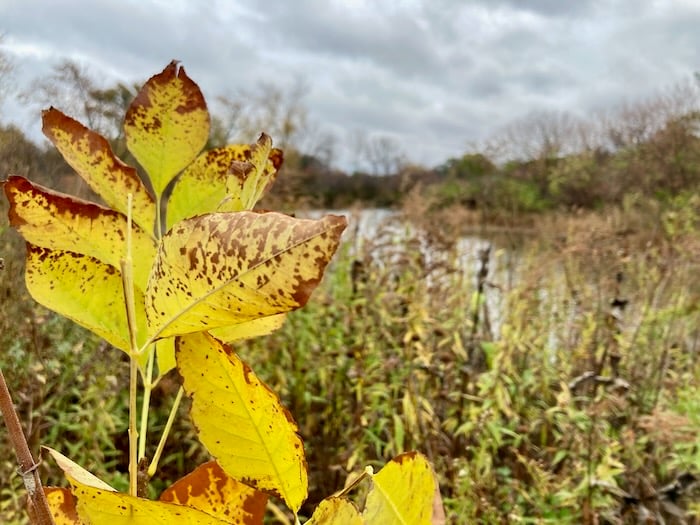Ten Convictions After the Election
Here's what I keep coming back to

Like many of you, I was deeply saddened by the presidential election result earlier this week. Over the past few days, mucking through disappointment, anger, and uncertainty, I’ve found myself returning to a handful of convictions.
1) The president-elect is a serial liar, abuser, racist, and would-be fascist. I remember these facts not to be petty but to respond appropriately to his actions.
2) People voted for the president-elect for many different reasons. Some of our fellow-citizens want the worst things he represents. Others, siloed in a manner common in our polarized country, chose the man for simpler reasons. I want to remain curious about these motivations as an expression of love.
3) Regardless of those motivations, the burden of this election will be felt most by our vulnerable neighbors. It’s possible to be interested in the voters’ intentions and furious about their impact.
4) The window of acceptability has shifted since 2016. While others grow numb to increasingly coarse rhetoric and cruel policies, it will be important to nurture characteristics of gentleness and kindness so that what becomes normal to some will remain personally unacceptable.
5) I’m beyond grateful for those in my community who carry generational memories of God’s faithfulness during long, long seasons of suffering and cruelty. For example, the courageous and confident posture exemplified by many Black Christians and their churches has opened reservoirs of hope I’d have otherwise missed.
6) In The Origins of Totalitarianism, Hannah Arendt writes that Hitler was “completely sincere and brutally unequivocal in the definition of the movement’s true aims” but that they weren’t “acknowledged by a public unprepared for such consistency.” It’s unhelpful to equate Trump and Hitler, but it’s useful to notice historical trajectories. The president-elect’s apologists want us to believe that his worst words are just that, words. I’m choosing to believe that he means every single thing he says and that there are powerful people willing to help him accomplish each of them.
7) For as long as I can remember we’ve been told that the country’s changing racial demographics will eventually remove white people from the absolute majority. But race isn’t static and whiteness in the USA has always included those it once excluded assuming they assimilate to the goals of white supremacy and assumptions of anti-Blackness. It’s important to be clear about how race works as we reckon with the president-elect’s diversifying coalition.
8) I’m most grieved by the pastors and ministry leaders who attached spiritual value to the Trump candidacy. Rather than dealing in political pragmatism, they sacramentalized the vote and made allegiance to the candidate a matter of salvation. I know of no other way to understand this dereliction than as false prophets leading people into lifeless idolatry.
9) Intentional or not, one of the impacts of chaotic national politics is how it distracts us from the many small, neighborly ways to nurture our local communities. Emotional maturity looks like remaining aware of how the big, faraway policies actually impact our neighbors while also showing up with and for those same neighbors in all of the quiet and selfless ways Christians often have.
10) Love can seem flimsy and cheap on a week like this. It isn’t. In fact, despite what the despair-dealers and purveyors of utilitarian accommodation would have us believe, love is everything. “Love,” said James Baldwin in 1960, “does not begin and end the way we seem to think it does. Love is a battle, love is a war; love is a growing up.” Love is the logic of Christ’s kingdom without end. It’s the keys to the kingdom and evidence of one’s citizenship. Love is everything, especially on a week like this.
(Photo credit: Josh Sorenson.)
Plundered Updates

I had a wonderful time talking about Plundered with some wonderful people in South Bend, IN last Sunday night. I was lucky enough to be joined by long-time friends Andrew Morrell (one of my favorite pastors in the world) and Adam Gustine (coauthor of the excellent Ecosystems of Jubilee). A new friend, Michaele LaVigne, author of the beautiful Living the Way of Jesus, also joined us for the conversation.
The View From Here

I took a couple of walks through Jackson Park this week. This time of year, even the lapse of a couple of days results in a noticeably different landscape. Come March I’ll be ready for the green and pink buds, but this muted palette will be more than enough for the next few months.